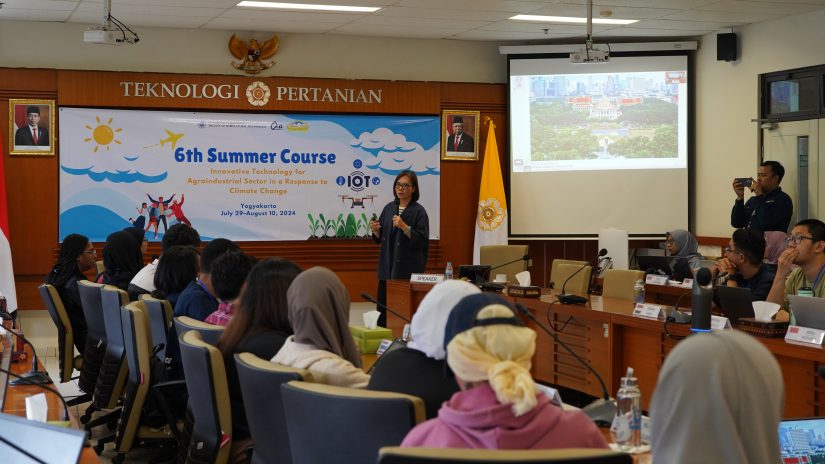
This morning, August 7th 2024, at 08.00 Western Indonesia Time (GMT+7), marked the 9th day of the Summer Course (SC) 2024 held by the Faculty of Agricultural Technology, Universitas Gadjah Mada.
There were 4 speakers, 3 online and 1 on-site. The first lecture was on Food Engineering, moderated by Wahyu Dwi Saputro, Ph.D. from FAT UGM. Prof. Dr. Rosnah Shamsudin, Professor from Universiti Putra Malaysia, explained about food processing including the primary and secondary techniques to enhance products/commodities shelf life, improve quality and functionally be more useful. She also mentioned the definition, goals, scoop, and the importance of food engineering. She elaborated the process and practices of Food Engineering and the possible research topics in food engineering. She stated the difference between agricultural engineering and food engineering and the role of food engineer in every supply chain to give understanding about the future career.
Before continuing to the next session, we had a coffee break from 09.45-10.15. The second lecture was on Food Functionalization, moderated by Qurrotul A’yun, Ph.D. from FAT UGM. Dr. Chaleeda Borompichaichartkul (on-site speaker) from Chulalongkorn University Thailand, explained the difference between functional food and food functions and how both of them were intercorrelated. She explained the trend of food in the new industry evolution as well as the lifestyle evolution as nowadays there are many noncommunicable diseases (NCDs) affecting society. She stated the importance of gut-brain axis and how active compounds, microbiota (fermented food), and meat alternatives can be great solutions. She also explained her latest research about fermented pineapple juice to produce bacteria cellulose (nata) especially co-fermentation with probiotics
The second session ended at 12.00 then we moved to the next session which was lunch break and prayer time. The plenary started at 13.00 for the third lecture on Soil Health for Promoting Agricultural Production, moderated by Ahdiar Fikri Maulana, Ph.D. from FAT UGM. Dr. Katharina Keiblinger from The University of Natural Resources and LIfe Sciences, Vienna (BOKU) explained the characteristics and the structure of soil and how microbiota, microbial activity and the seasonal effects affected the soil. She also explained about co-creation of diverse stakeholders, locally available soil amendments, and future research about remediation strategies of heavy metal and soil parameters.
The fourth session started after a 30 minute coffee break around 15.15. It was about Protein Transition and The Nutritional Quality of the Diet, moderated by Dr. Lily Arsanti Lestari from FAT UGM. Dr. Eduardo Capuano from Wageningen University and Research, The Netherlands explained the example of protein transition and commodities that are potential for alternating meat protein such as legumes, insects, microalgae, mycoproteins, and PBMA. He showed the calculation of PDCAAS and DIAAS and ratios of dietary fiber, iron and vitamin B12 of each protein alternative compared to real meat (beef).
